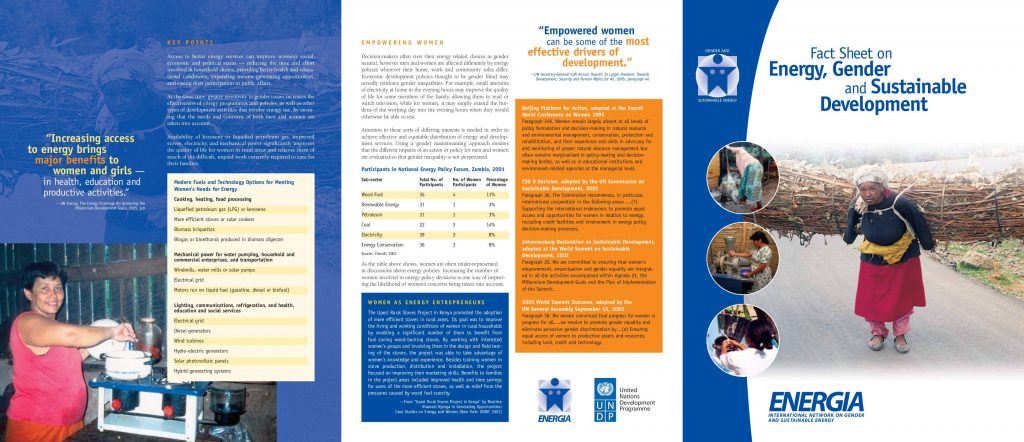Access to better energy services can improve women’s social, economic and political status — reducing the time and effort involved in household chores, providing better health and educational conditions, expanding income-generating opportunities, and easing their participation in public affairs.
At the same time, greater sensitivity to gender issues increases the effectiveness of energy programmes and policies, as well as other types of development activities that involve energy use, by ensuring that the needs and concerns of both men and women are taken into account.
Availability of kerosene or liquefied petroleum gas, improved stoves, electricity, and mechanical power significantly improves the quality of life for women in rural areas and relieves them of much of the difficult, unpaid work currently required to care for their families.

Follow us on: